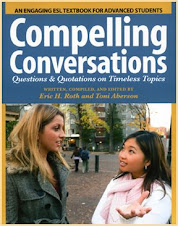Who makes the rules? Who chooses the rulers? Can citizens peacefully replace corrupt leaders?
In the United States of America, voters enjoy their opportunity to hire and fire the President. On Tuesday, American citizens voted, selected a new leader, and millions of people around the nation smiled, laughed, and felt hopeful again. Senator Obama, as so often, captured the power and beauty of the peaceful transfer of power in his eloquent victory speech.
"If there is anyone out there who still doubts that America is a place where all things are possible; who still wonders if the dream of our founders is alive in our time; who still questions the power of our democracy, tonight is your answer. "
Barack Hussein Obama (1961- ), President-elect of the United States
I, like so many Americans, feel very proud. We are coming back – to our ideals, our citizens, and our best traditions! The United States, the first nation explicitly created on enlightenment ideals, will become an inspiring 21st century nation.
This surprising election seems like a very teachable moment. Immigrants and international students can rest assured that they made the right decision to come to the United States. English language learners around the world should feel the enlarged possibilities that come with our strange tongue. European sceptics and Arab critics should candidly reassess their prejudices about Americans and the American government. After all, Obama – the son of an international African student and an adventurous Midwestern scholar – has just won the Presidency of the United States. Where else could that happen?
Let's talk about the power of elections and democratic values in our English classes. Let's discuss the possibilities for peaceful reform, voting, and the rights of citizens to choose their own leaders. ESL/Civics classes always discuss these questions, but English teachers should also celebrate this Anglo-American tradition in English language classes around the world. Let's start defending Western values in our classes- and even promoting western democratic principles. Human rights matter. Democracy matters. Freedom counts. The good society can face its problems, openly debate vital public policy issues, and peacefully elect new leaders.
Click here for a free advanced ESL conversation lesson on Voting from Compelling Conversations.
Ask more. Know more. Share more.
Create Compelling Conversations.
Visit www.CompellingConversations.com
Showing posts with label citizenship class. Show all posts
Showing posts with label citizenship class. Show all posts
Thursday, November 6, 2008
Thursday, August 14, 2008
Do your EL/Civics students know about the electoral college?
How could George W. Bush be elected President of the United States? Really.
Let me be more precise. How could Al Gore win the popular vote and still lose the 2000 U.S. Presidential election to the second George Bush? The short, unpleasant answer is that the popular vote doesn’t count – and the only vote that matters in electing presidents in the United States is the electoral college.
What is the electoral college? How many votes does your state have in the real United States presidential election? If you teach U.S. history, EL/Civics, or just vote in U.S. elections, you already know these answers – and your students and friends should too!
Check out the easy to use electoral college map hosted by the Los Angeles Times.
Among the many interesting features is that the default setting, based on the 2004 U.S. Presidential election, shows Senator McCain with a clear electoral college advantage over Senator Obama. Amidst the daily national polls, it’s easy for U.S. citizens – let alone adult immigrants and citizenship students – to forget this vital fact. You can also go to the fine Wikipedia article on the peculiar history and strange institution called the United_States_Electoral_College.
By the way, I’m one of those folks that wants to abolish the electoral college as a sad legacy of both aristocratic ideals and slave-era logic. Direct elections work just fine. Since abolishing the electoral college seems very, very difficult, we should – it seems to me – at least switch from a winner take all system for each state to a fairer system where each congressional district chooses its own electors. Adopting this more transparent, honest “tiered” system would quickly reveal the huge divide between urban and rural America across the country. If Senator Obama wins the popular vote and still loses the electoral college, I expect more Democrats to rediscover their discomfort with the very undemocratic electoral college. Let’s hope that doesn’t happen!
Ask more. Know more. Share more.
Create Compelling Conversations.
Visit www.CompellingConversations.com
Let me be more precise. How could Al Gore win the popular vote and still lose the 2000 U.S. Presidential election to the second George Bush? The short, unpleasant answer is that the popular vote doesn’t count – and the only vote that matters in electing presidents in the United States is the electoral college.
What is the electoral college? How many votes does your state have in the real United States presidential election? If you teach U.S. history, EL/Civics, or just vote in U.S. elections, you already know these answers – and your students and friends should too!
Check out the easy to use electoral college map hosted by the Los Angeles Times.
Among the many interesting features is that the default setting, based on the 2004 U.S. Presidential election, shows Senator McCain with a clear electoral college advantage over Senator Obama. Amidst the daily national polls, it’s easy for U.S. citizens – let alone adult immigrants and citizenship students – to forget this vital fact. You can also go to the fine Wikipedia article on the peculiar history and strange institution called the United_States_Electoral_College.
By the way, I’m one of those folks that wants to abolish the electoral college as a sad legacy of both aristocratic ideals and slave-era logic. Direct elections work just fine. Since abolishing the electoral college seems very, very difficult, we should – it seems to me – at least switch from a winner take all system for each state to a fairer system where each congressional district chooses its own electors. Adopting this more transparent, honest “tiered” system would quickly reveal the huge divide between urban and rural America across the country. If Senator Obama wins the popular vote and still loses the electoral college, I expect more Democrats to rediscover their discomfort with the very undemocratic electoral college. Let’s hope that doesn’t happen!
Ask more. Know more. Share more.
Create Compelling Conversations.
Visit www.CompellingConversations.com
Subscribe to:
Posts (Atom)





